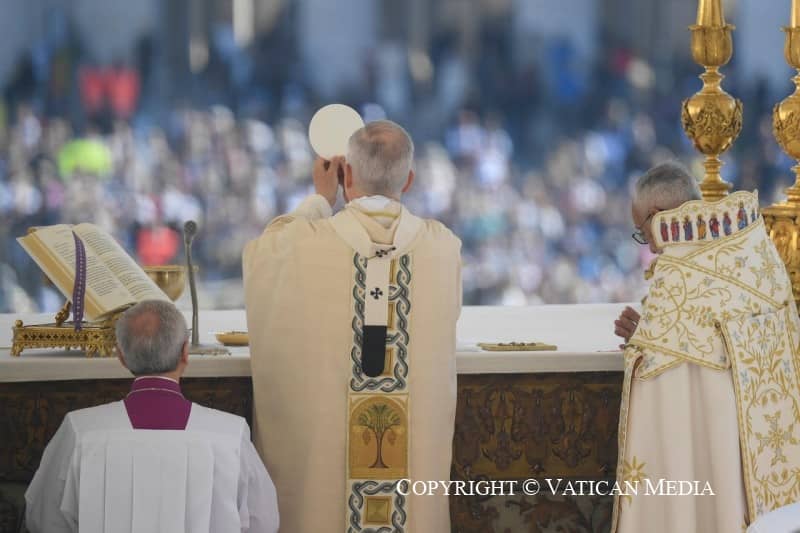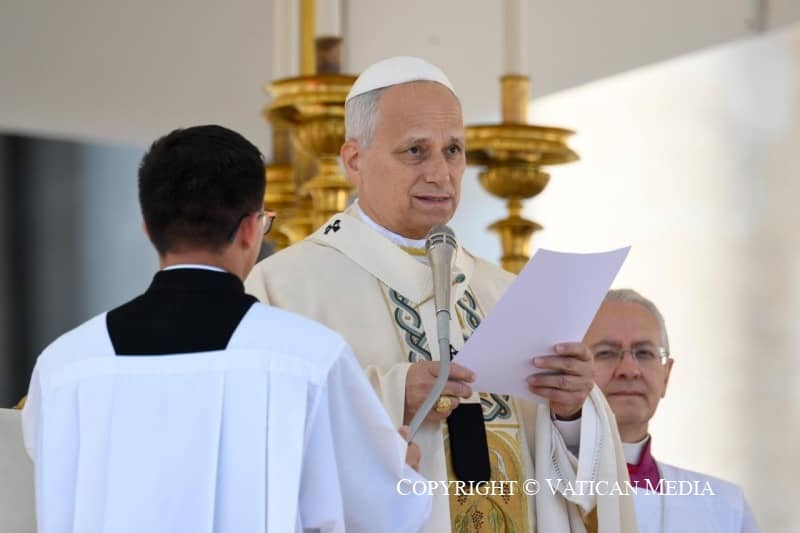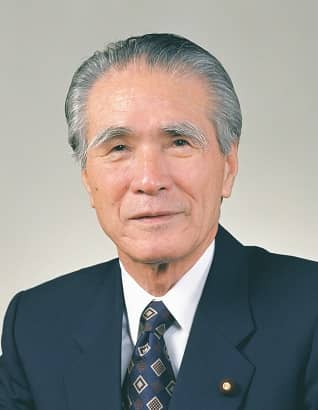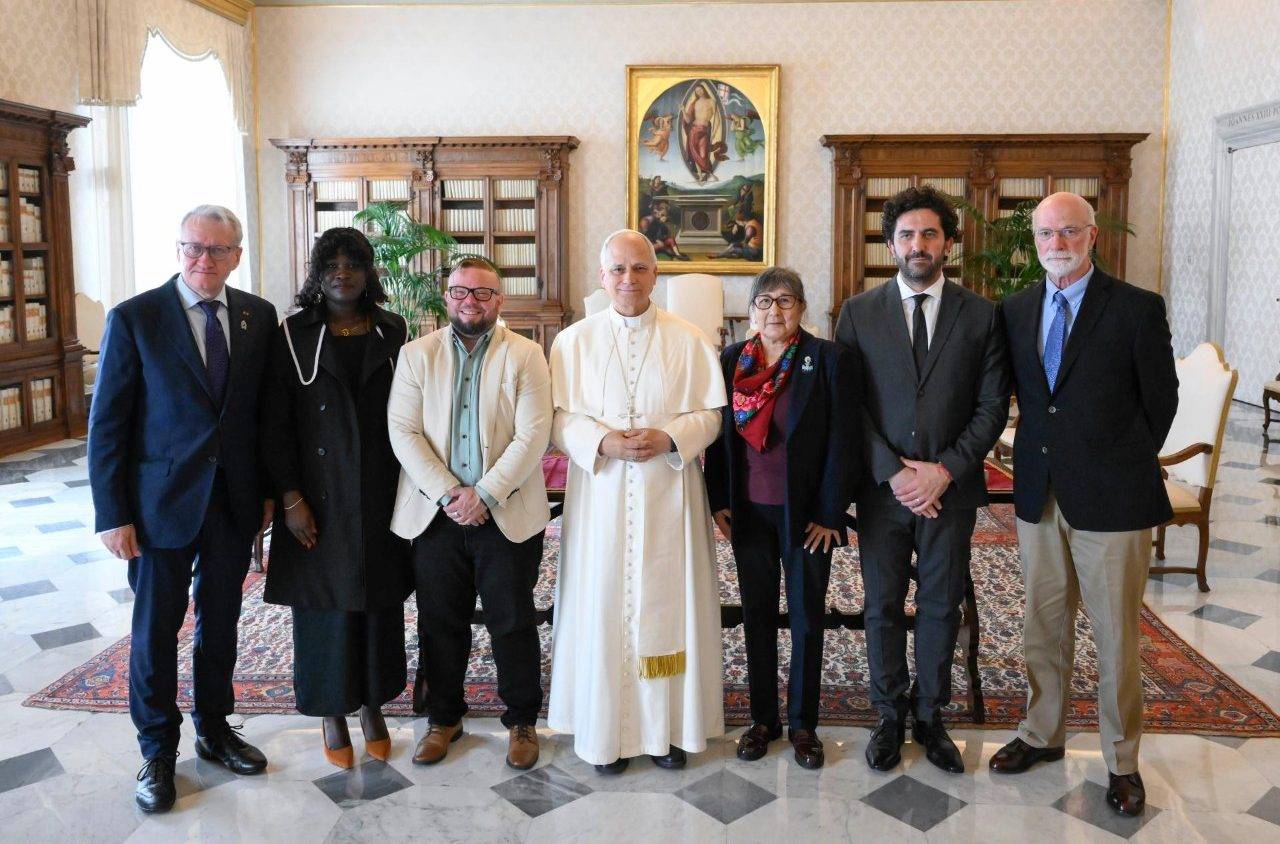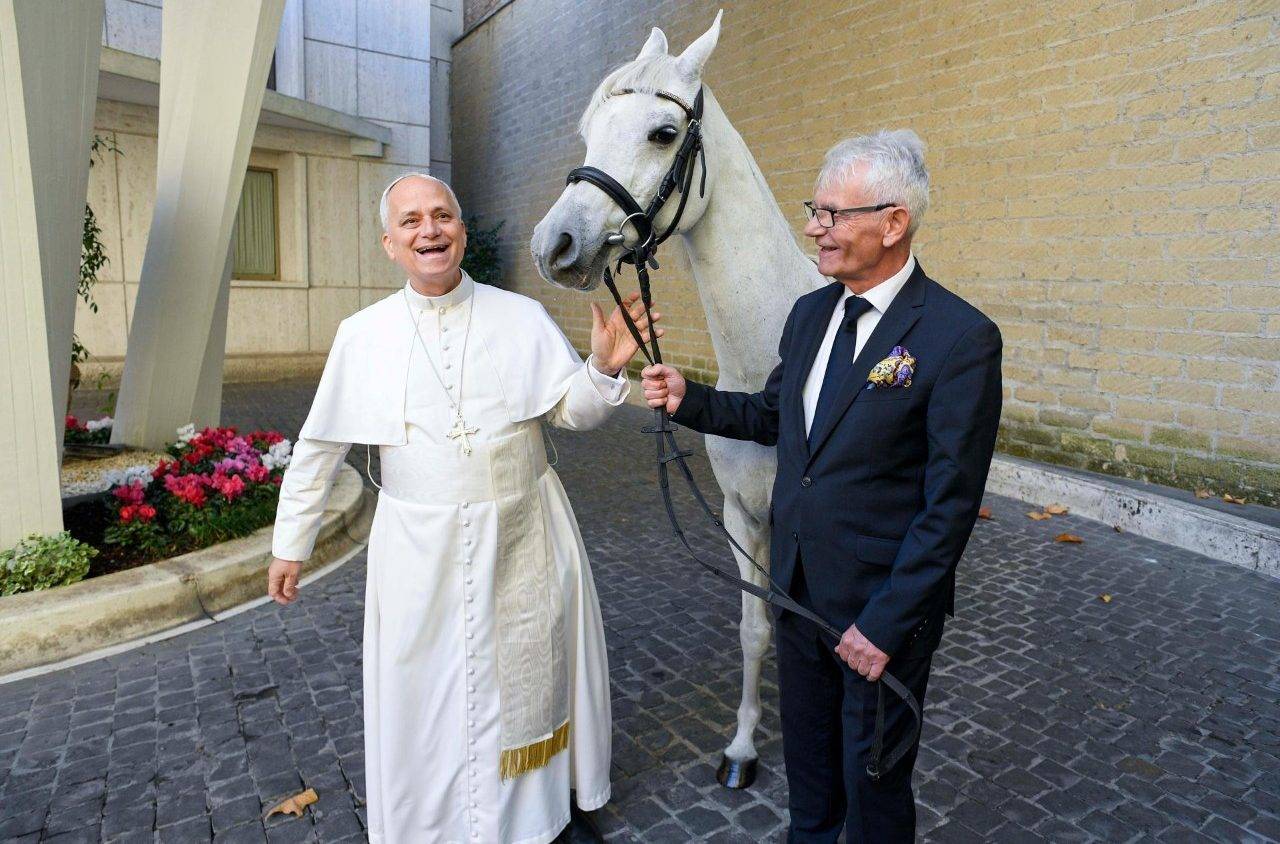ROME – Threatening clouds over Rome on Sunday made for a gloomy day for many. However, Pope Francis, off paying a visit to two Italian cities, seemed to have a perfect day, having lunch with the poor, and spending half of his time greeting migrants, the elderly, people with disabilities and babies.
“There is no Christian life made at the table, scientifically built, where it is enough to fulfill some mandates to soothe the conscience: Christian life is a humble journey, of a conscience that is never rigid and always in connection with God, that can repent and entrust itself to Him in its poverty, never pretending to be self-sufficient,” Francis said in a homily at a Mass in Bologna’s Renato Dall’Ara stadium.
The Mass closed a 10-hour visit on Sunday to Cesena and Bologna.
The pope was reflecting on Sunday’s Gospel, which speaks of Jesus addressing religious leaders of his time, and telling them the parable of the two sons: The one who, when asked by his father to go work in the fields, refuses, but then goes, and the one who says “yes” but doesn’t follow through.
In the heart of the first one, the pope said, the request from the father remains, while in the second, despite his yes, “the voice of the father was buried.” The first son, the pope said, overcame laziness because of this, while the second, “who knew good, denied the saying with the doing.
“He had in fact become impermeable to the voice of God and of conscience, and so he had embraced the duality of life without any problems,” the pope said.
With the parable, he continued, “Jesus places two roads ahead of us.” Being “sinners on the way, who listen to the Lord and when they fall they repent and rise, like the first son; or seated sinners, always ready to justify themselves and with words, according to what serves them best.”
The chief priests and the elders whom Jesus spoke to, Francis said, were similar to the child who led a double life, while the normal people often behaved as the first son.
“These leaders knew and explained everything, in a formally unexceptionable way, as real intellectuals of religion,” Francis said. “But they did not have the humility to listen, the courage to question, the power to repent. And Jesus is very strict: he says that even the publicans precede them in the Kingdom of God.”
They weren’t “mistaken on something,” but their entire way of living and thinking in front of God was wrong, the pope said of the chief priests and elders. They were “inflexible guardians of human traditions, unable to understand that life according to God is a path and calls for humility to open up, repent, and start over.”
Humility and acknowledging the need for God, Francis said, is the way to overcome “hypocrisy, the duplicity of life, clericalism that accompanies legalism,” the old yet “revised and up-to-date evil denounced by Jesus in the parable.”
The key word, the pope insisted, is repentance. It’s this, he said, “that makes it impossible to become rigid, to transform no to God into a yes, and the yes to sin into no for love of the Lord.
“The will of the Father, which every day gently speaks to our conscience, is accomplished only in the form of repentance and continuous conversion,” Francis said, adding that ultimately, there are two ways: To be repented sinners or hypocritical sinners.
What matters, according to Francis, is not the reasoning that tries to save appearances, but a heart that moves forward with the Lord amidst the daily struggles, and which repents and returns to Him.

The pontiff closed his homily leaving the tens of thousands gathered despite the semi-constant drizle that fell throughout the day, with three reference points to look for. In Italian, he called these the “three p’s,” but in English they translate into “word,” “bread,” and “the poor.”
By “Word,” Francis means the Gospels, “which is the compass for walking humbly, for not losing God’s path and falling into wordliness.”
“Bread,” he continued, is the Eucharistic bread, because “everything starts from the Eucharist. The Church is in the Eucharist, not in chattering and chronicles, but here, in the Body of Christ shared by sinful and needy people.”
The last “p” he said, are the poor: “Even today, unfortunately, so many people still lack what they need. But there are also so many who are poor of affection, people who are alone, and poor of God. In all of them we find Jesus.”
In total, the pontiff delivered six addresses on Sunday, many filled with vintage Francis quotes, such as his appeal for parents to “waste time” playing with their kids during a meeting with clergy, consecrated, laity of pastoral councils, members of the curia and representatives of the parishes in Caserta.
Here too, he once again insisted on the importance of intergenerational dialogue: “In your groups, your parishes, your communities, seek this dialogue” – between young and old he said.

“A young person who hasn’t learned how to caress an old person is missing something, an elderly person who doesn’t have the patience for the young is missing something. Both need each other,” the pope added, speaking off the cuff, something he did on-and-off throughout the day.
Later in the day, he visited a refugee center on the outskirts of Bologna known as “The Hub.” It’s home to some 1,000 asylum seekers, most of whom arrived in Europe from Africa and the Middle East through the Mediterranean Sea, which Francis has dubbed the “mare mortum.”
After his remarks, in which he called for humanitarian corridors for refugees to avoid “intolerable delays” and support for private and community-based programs of welcome, the pope spent a long time greeting many of them personally.
RELATED: Pope tells immigrants, ‘I want to carry your eyes in mine, your hearts in mine’
Images showed that he was also given a yellow bracelet, like the ones asylum seekers wear in this center, with his name and the number 3900003 on his right wrist.
As he often does during these daily trips, he had lunch with poor people. In this case, it was close to 1,000 people, including those who assist them. The event took place in the Basilica of St. Petronio.







